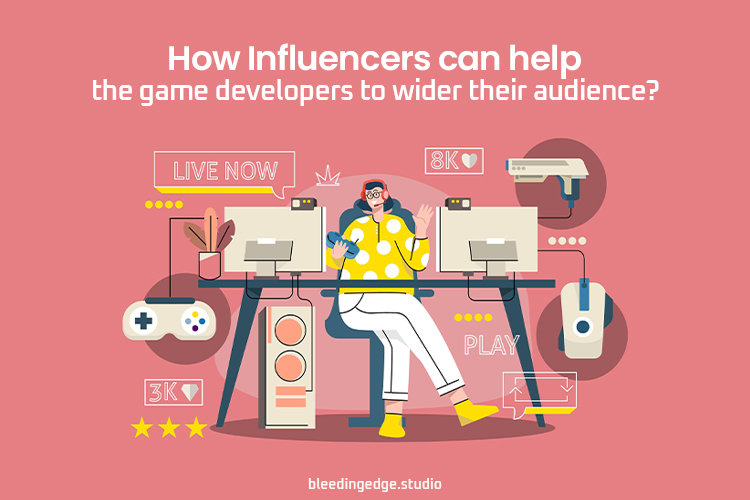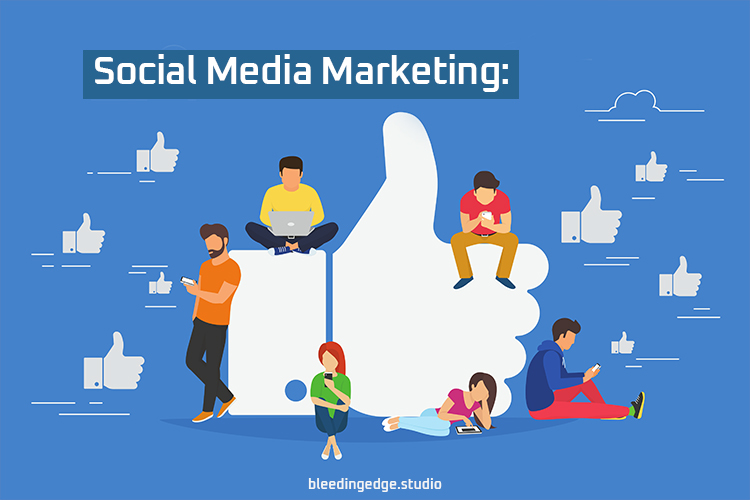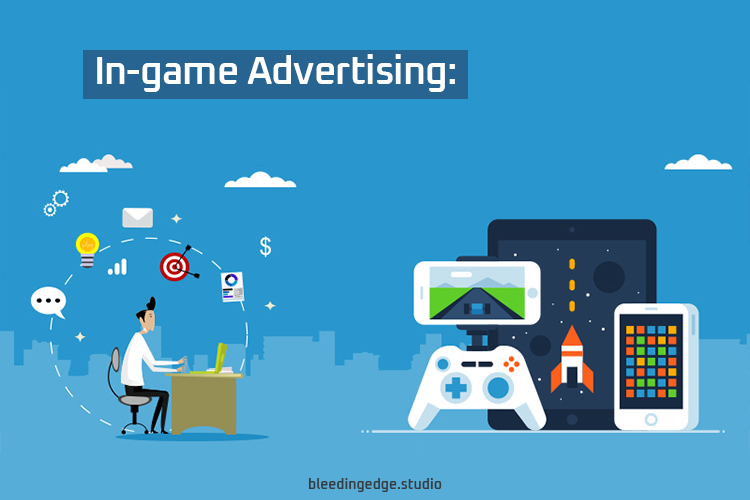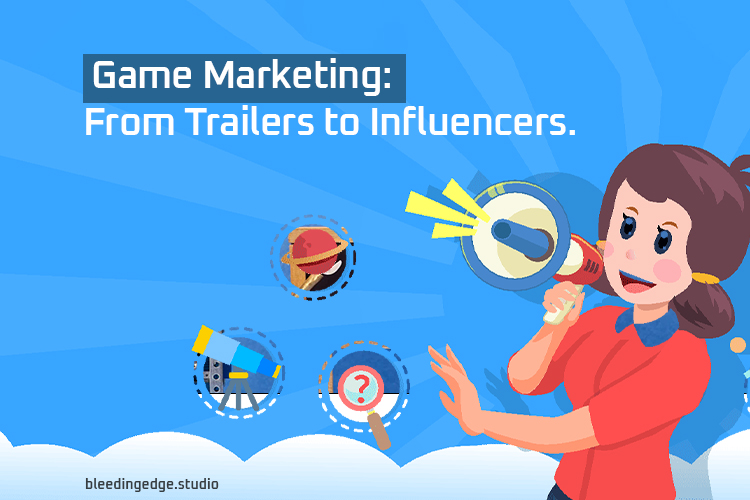Leveraging Trailers and Influencers for Effective Game Marketing
Introduction:
In today’s gaming industry, game marketing has become an essential part of the game development process. With the increasing competition and the rise of new technologies, game marketing has become even more crucial in promoting games and reaching new audiences.
In 2023, the gaming market is expected to reach $256 billion, making it one of the most lucrative industries in the world. However, with so much competition, it can be challenging for developers to get their games noticed by the right audience. Game marketing has evolved from traditional strategies to new technologies and social media platforms like trailers, influencers, and online communities. In this article, we will look at the various marketing strategies game developers can use to increase their game’s success.
Trailers:
Trailers are one of the most crucial components of game marketing. They give the audience a glimpse of the game, its features, and the storyline, generating excitement and anticipation among potential players. Trailers can vary in length and style, from cinematic to gameplay trailers. Cinematic trailers are usually shorter and focus on telling the story or creating an emotional connection with the audience. On the other hand, gameplay trailers showcase the game’s features, mechanics, and graphics, giving the audience a sense of what the game will look like and how it will play for game marketing.
Trailers are usually released before the game’s launch to create buzz and generate interest among potential players. They are often shared on social media platforms and gaming websites to reach a broader audience. Trailers can also be used to promote game events, such as conventions or tournaments, and showcase new updates or DLCs.
Trailers are short video advertisements game developers use to promote their games before release. Trailers are designed to showcase the game’s features, graphics, and gameplay mechanics to create excitement and anticipation among potential players. They are usually between 30 seconds to a few minutes long, depending on the content and purpose of the trailer.
Trailers are often released before the game’s launch to generate buzz and interest among gamers. They are shared on various platforms, such as social media, gaming websites, and YouTube, to reach a broader audience. The trailers highlight the game’s unique selling points, including its storyline, characters, graphics, and gameplay mechanics. Trailers can be cinematic or gameplay-focused, depending on the game’s genre and target audience.
Cinematic trailers often showcase the game’s storyline and create an emotional connection with the audience. They are designed to immerse the viewer in the game’s world and characters, often featuring high-quality animations and voice acting. Conversely, gameplay trailers showcase the game’s mechanics and gameplay features. They often include snippets of gameplay footage, demonstrating how the game is played and highlighting its unique features.
Trailers can promote game events, such as conventions or tournaments, and showcase new updates or DLCs. Trailers are a crucial component of game marketing and play a significant role in generating interest and hype around upcoming games.
Influencers:
Influencers, also known as content creators, have become a significant force in the gaming industry. Influencers are those individuals with a significant following on social media platforms such as YouTube, Twitch, or Instagram who create content related to gaming. They often share gameplay footage, reviews, and opinions about different games, influencing their followers’ buying decisions.

Influencers can help game developers reach a wider audience and generate game interest. Game developers often partner with influencers, providing them early access to the game, sponsorships, or even in-game items to promote their game. Influencers can also provide valuable feedback to game developers, helping them improve their games based on their audience’s opinions.
Influencers have a significant following on social media platforms like Instagram, Twitter, YouTube, and Twitch. They are often considered experts or authorities in a particular niche or industry, and their followers trust their opinions and recommendations. Influencers can be celebrities, gamers, or content creators who have built a loyal following through engaging content and personality.
In the gaming industry, influencers play a crucial role in game marketing, as they can promote games to their followers and generate interest and excitement around upcoming releases. Influencers can help game developers reach new audiences and create a buzz around their games by creating content that showcases the game’s features and gameplay mechanics. Influencers can also give their followers a sneak peek of the game, creating anticipation and generating hype before its release in-game marketing.
Game developers often partner with influencers to promote their games by providing them early access to the game, free copies, or other perks in exchange for creating content showcasing the game. Influencers can create content, such as gameplay videos, reviews, and live streams, to generate interest and excitement around the game.
Influencers can also help game developers get feedback on their games before they are released. By providing influencers with early access to the game, developers can get valuable feedback on the game’s mechanics, graphics, and other features. This feedback can help developers make improvements and adjustments before the game’s official release, leading to a better player experience.
Influencers are critical in-game marketing by promoting games to their followers and generating interest and excitement around upcoming releases. They can help game developers reach new audiences, create a buzz around their games, and get valuable feedback before release. Game developers can leverage their reach and credibility by partnering with influencers to create a successful game launch.
Online Communities:
Online communities are individuals with a common interest in a particular game or genre. These communities can be found on social media platforms, gaming forums, or in-game chat rooms. Online communities play a significant role in game marketing, as they can create buzz and generate interest in games. They also provide a platform for game developers to interact with their players, gather feedback, and address any issues or concerns.
Game developers often engage with online communities, giving them sneak peeks of upcoming updates, hosting Q&A sessions, or organizing community events. These interactions help create a sense of community and foster a loyal fan base, who can become brand ambassadors and help promote the game to their friends and followers.
Online communities are groups of individuals who share a common interest or goal and interact with each other through online platforms, such as forums, social media, and gaming communities. In the gaming industry, online communities play a significant role in game marketing, as they can provide game developers with a way to engage with their audience, build a loyal fan base, and promote their games.
Online communities can provide game developers with valuable feedback on their games before release. Players can share their thoughts on the game’s mechanics, graphics, storyline, and other features, helping developers improve the game and address any issues or concerns. This feedback can also help developers understand what their audience wants, allowing them to create games that meet their expectations and needs.
Online communities can also help developers promote their games by creating buzz and excitement around upcoming releases. Community members can share news and updates on social media platforms, forums, and other online channels, spreading the word about the game to their followers and friends. This can increase visibility and interest in the game, generating more pre-orders and sales.
In addition to providing feedback and promotion, online communities can help game developers create a loyal fan base. By engaging with their audience and building a community around their games, developers can create a group of dedicated fans who are more likely to support future releases and share their love for the game with others. This can increase brand loyalty and repeat business for game developers regarding game marketing.
Overall, online communities play a vital role in game marketing by providing game developers with a way to engage with their audience, gather feedback, promote their games, and create a loyal fan base. By leveraging the power of online communities, game developers can increase their visibility, generate excitement around their games, and create a successful game launch.
In short, Game marketing has become a critical component of game development, helping developers reach a broader audience and generate interest in their games. Trailers, influencers, and online communities are just a few tools game developers use to promote their games. With the increasing competition and the rise of new technologies, game marketing will continue to evolve, and game developers must stay up-to-date with the latest new trends and strategies to succeed in the gaming industry.
Social Media Marketing:

Social media platforms have become a powerful tool for game marketing, as they provide game developers with a way to engage with their audience and promote their games globally. Social media platforms like Facebook, Twitter, Instagram, and TikTok allow game developers to create a social media presence, share news and updates, and interact with their followers. By creating engaging content, game developers can build a community around their games and increase brand awareness.
Social media platforms also grant targeted advertising options, allowing game developers to reach specific audiences based on demographics, interests, and behaviors. This can be particularly effective for reaching new audiences and generating interest in new games.
Social media marketing refers to using social media platforms like Facebook, Twitter, Instagram, and LinkedIn to promote products or services. Social media marketing plays a lead role in-game promotion in the gaming industry, providing game developers a way to reach a broad audience, engage with their fans, and promote their games.
Social media marketing can create buzz and excitement around upcoming game releases. Game developers can use social media platforms to share trailers, gameplay footage, and other promotional materials that showcase the game’s features and generate interest among potential players. Social media can also provide updates on the game’s development process and give fans a behind-the-scenes look at the game’s creation.
Social media can also engage with fans and build a community around the game. Game developers can use social media platforms to interact with fans, answer questions, and respond to feedback. This can help create a community around the game, increasing brand loyalty and repeat business.
Social media marketing can also drive traffic to the game’s website or online store, where players can purchase or pre-order the game. Game developers can use social media platforms to share links to their website or online store, providing fans an easy way to purchase the game.
Another advantage of social media marketing is that it allows game developers to track the performance of their marketing campaigns. Social media platforms provide detailed analytics that shows how many people have seen the game’s promotional materials, clicked on links, and engaged with the content. This data can be used to make important decisions about future marketing campaigns and improve the game’s overall marketing strategy.
Social media marketing plays a critical role in-game marketing, providing game developers with a way to reach a broad audience, engage with fans, and promote their games. By leveraging social media platforms, game developers can create buzz and excitement around their games, build a loyal fan base, and drive traffic to their website or online store.
Mobile App Advertising:
With the rise of mobile gaming, mobile app advertising has become an essential component of game marketing. Mobile app advertising refers to promoting games through mobile ads, such as banner ads, interstitial ads, and rewarded video ads. These ads are displayed within mobile apps or games and can help game developers reach a broad audience of mobile users.
Mobile app advertising can target specific audiences based on demographics, location, interests, and behaviors, making it a cost-effective way to reach new users and promote games.
In-Game Advertising:
In-game advertising refers to the placement of ads within games. These ads can be displayed in various forms, such as banners, videos, or product placements. In-game advertising can be an effective way for game developers to generate revenue and promote other products or services.

However, in-game advertising can also be a source of frustration for players if the ads are intrusive or disrupt the gameplay experience. Game developers need to strike a balance between monetization and player experience when implementing in-game advertising.
Mobile app advertising refers to promoting mobile applications through various advertising channels, such as social media, display ads, mobile video ads, in-app ads, and mobile app stores. Mobile app advertising plays a significant role in promoting mobile games and driving downloads in the gaming industry.
One of the most popular mobile app advertising channels is in-app advertising. In-app ads can be displayed within other mobile apps, allowing developers to reach a broad audience of mobile users who may be interested in their game. In-app ads can be displayed in various formats, such as banner ads, interstitial ads, and native ads.
Another effective mobile app advertising channel is mobile video ads. Mobile video ads can be displayed within other mobile apps or social media platforms, providing a more engaging and interactive way to promote mobile games. Video ads can showcase the gameplay, graphics, and other game features, generating interest among potential players of game marketing.
Social media platforms like Facebook and Twitter can also be used for mobile app advertising. Game developers can use these platforms to create targeted ad campaigns that reach specific audiences based on demographics, interests, and behaviors. Social media platforms can create buzz and excitement around upcoming game releases, driving pre-orders and downloads.
Mobile app stores, such as the Apple App Store and Google Play, also provide opportunities for mobile app advertising. Developers can use app store optimization (ASO) techniques to optimize their game’s listing, making it more visible and discoverable to potential players. Developers can also use paid app store advertising to promote their games and drive downloads.
Mobile app advertising is crucial in promoting mobile games and driving downloads. By leveraging various advertising channels, game developers can reach a broad audience of mobile users, generate interest in their game, and drive downloads.
Conclusion:
Game marketing has become a crucial component of the game development process, as it helps game developers reach a broad audience and promote their games globally. From trailers to influencers, social media marketing, mobile app advertising, and in-game advertising, game developers have many tools to promote their games effectively. By staying up-to-date with the latest trends and strategies, game developers can create a loyal fan base, generate revenue, and succeed in the highly competitive gaming industry.
Game marketing is a complex and multifaceted process involving various strategies and tactics to promote games and reach target audiences. From trailers to influencers, online communities, social media marketing, and mobile app advertising, game developers have various tools to promote their games and reach a broad audience of players.
The gaming industry is highly competitive, and game developers must use a combination of these marketing strategies to create buzz and excitement around their games, build a loyal fan base, and drive downloads and revenue. Ultimately, the success of a game depends on the quality of the game itself, but effective game marketing can help ensure that the game reaches its full potential and achieves success in the highly competitive gaming market.

